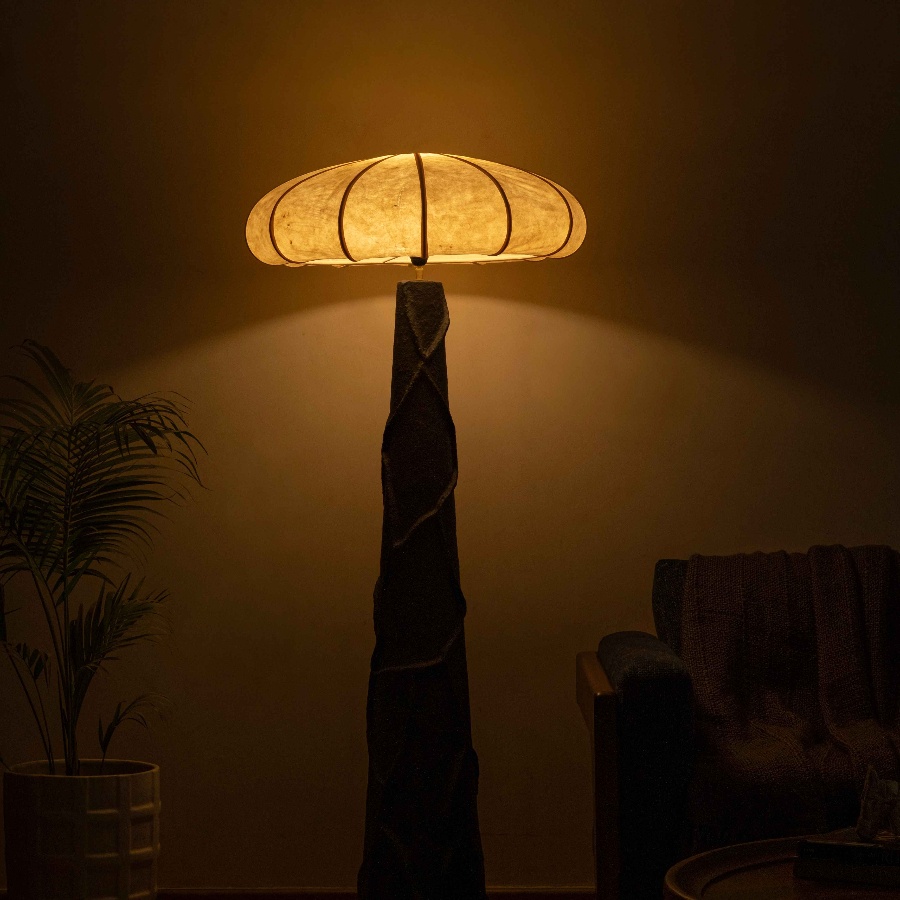On the face of it, keeping a just-launched restaurant open for business only 30 hours a week, especially when customers clearly want more, seems reckless. It makes no sense to turn so many paying customers down and have reservation lines open for just four hours. But Mallyeka Watsa and Sanchez, who founded Otra, won’t have it any other way.
Yes, chef
For the duo, it’s all about thoughtfulness. Being closed on Mondays and Tuesdays is a policy they adopted at Americano (their hit restaurant also in Kala Ghoda) post the pandemic, and found that it works better at every level for their brand of hospitality and business. “You can’t really expect people to understand hospitality, or to embody it, if you’re not hospitable towards them,” says Sanchez. He’s not talking about guests, but about his teams at Otra and Americano.
Having worked at Michelin-starred restaurants like Manresa, Restaurant La Folie, and Eleven Madison Park, Sanchez knows a thing or two about the notoriously ruthless food industry. Like The Bear’s masterful depiction of the chaos and stress of a professional kitchen, the dark side of kitchen culture is no different in India. In fact, Mumbai’s restaurant industry is especially brutal, with its high rents, slim margins, intense competition, bureaucratic roadblocks, and flighty customers.
Sanchez also knows that the success of a restaurant is not just the genius of the chef, but the work of a team of line cooks, servers, dishwashers, runners, and bartenders. For Watsa and Sanchez, company culture is about quality over quantity. “We have two days off every week,” he says. “People who are new to the company, who have worked in the old system, they see it. It’s a night-and-day difference. It’s such a wonderful thing to be able to count on those days and for the team to know why they get them.” Choosing work-life balance over a balance sheet, Sanchez has made his team more productive and excited to be at work, and eventually, better at welcoming, feeding, serving, and handling guests.
In a profession where battling burnout and toxic work culture are seen as a badge of honour, Sanchez and Watsa are rewriting the recipe of success with their five-day work week. “At a time, my team puts in 14 hours a day,” she says, “What we realised in a six-day week is that when we went home, we had one day to sleep, and then the cycle started again. By the third or fourth day, you can just see the exhaustion on people’s faces.”
Kitchen confidential
Burnout is not a good look in a people-facing job. And in the kitchen, exhaustion can be downright dangerous. “I come in to work at 1:20 pm, and finish at about 12:30 am; the morning shift is already there, working on the prep list from the previous night,” says Rimpal Patel, commis 2 at Otra, who, until a month ago, worked at a now shuttered fine-dining restaurant that was open for lunch and dinner, seven days a week. “That job felt absolutely different. There was no chance of having two days off. I used to end up doing 15- or 16-hour shifts, sometimes with no offs for 15 days. [That kind of schedule] affects our mental and physical health. I’m glad I now work for a place where employees are well rested so that they can perform better.” It shows. Patel and team put together a menu of tostadas, ceviche, tacos, and mole with such creativity and attention to detail that diners can’t seem to get enough of it.
It turns out that Otra’s limited hours are not a reckless choice, but a radical one. Employee work-life balance is just one piece in the precarious Jenga tower of running a restaurant. The other parts are maintenance, training, overheads, and prep. Lots of prep.
At Otra, they grind corn, specially grown for their tortillas by Three One Farms, at their office down the road. They nixtamalise their maize masa on site. Minutes after I meet Sanchez, a kitchen staffer comes over with a tray of Santa Fe peppers being grown for Otra by Kisano. Sanchez looks closely and approves. These peppers will then get stuffed with shrimp mousse—a dish that has been flying off the pass right from the first night. The first half of the day is spent preparing these for the 120-odd guests Otra feeds every night it is open. Some teams start coming in at 8 am and leave at 6 pm, the last people leave at 1 am.
“For most people concerned about profits, I would argue that [our] system is actually more profitable,” says Sanchez. “When you’re open seven days a week, lunch and dinner, yes, the revenue earning potential is greater. But you don’t have time to do team-building activities, maintenance and repairs. The train is always running. Then you need to hire more people, so [you have] more expenses and running costs.”
A happy side effect of this five-day system is in the camaraderie one can see in the front of house, back of house, and in the bar team at both Otra and Americano. This leads to better teamwork across sections; they have each other’s backs. “They like hanging out together on their days off,” says Watsa, “And we really like this inter-team dynamic, which is not possible in most restaurants, because everybody has different days off.”
Sanchez recommends keeping the shutters down on days when business is a bit slow, to allow the staff to blow off steam. “I think a lot of restaurant owners react to the pressure that people put on them,” says Sanchez. “They change policy or reorganise their business based on people’s opinion. That’s dangerous, because you risk losing what people liked about you in the first place.”







